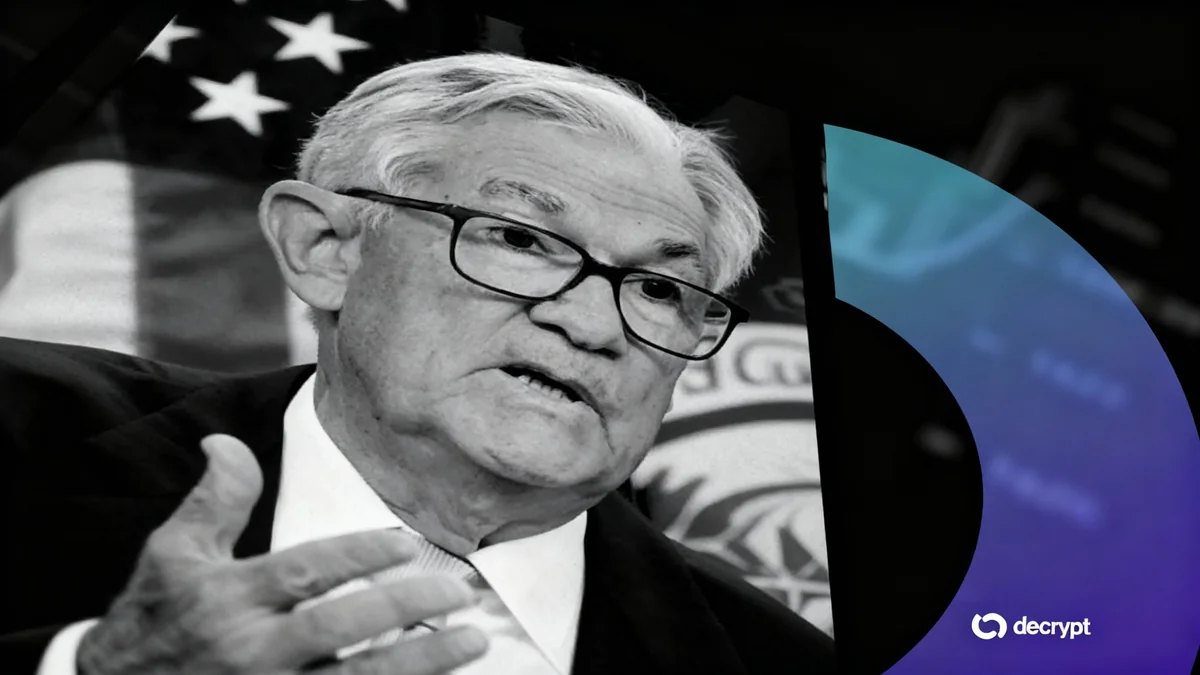Ethereum co-founder Vitalik Buterin has outlined a new strategic direction for the network, proposing that low-risk decentralized finance (DeFi) applications should become its primary economic engine. This approach aims to provide a stable and ethical revenue source to support the ecosystem's growth, moving away from the volatility of speculative assets like memecoins and NFTs.
In a recent blog post, Buterin addressed the growing divide between highly profitable, speculative activities on the blockchain and projects that align with Ethereum's core values of decentralization and financial inclusion. His proposal seeks to create a sustainable financial foundation by leveraging the consistent, predictable fees generated by safer DeFi protocols.
Key Takeaways
- Vitalik Buterin suggests prioritizing low-risk DeFi to create a stable economic base for Ethereum.
- The goal is to bridge the gap between speculative, high-fee applications and the network's foundational values.
- He proposes using protocols that offer reasonable, stable yields on assets like stablecoins to generate predictable revenue.
- Buterin draws a parallel with Google's business model but emphasizes avoiding its data collection practices by leveraging decentralization.
- The strategy includes developing new financial instruments like flatcoins to reduce reliance on the U.S. dollar.
Addressing a Core Conflict within Ethereum
Vitalik Buterin has identified what he describes as a significant "dissonance" within the Ethereum community. This conflict stems from the disparity between different types of applications on the network.
On one side are highly speculative applications, including memecoins, certain NFT projects, and high-leverage trading platforms. These activities generate substantial transaction volume and, consequently, significant fee revenue for the network. This revenue is crucial for securing the blockchain and funding its operations.
On the other side are projects that more closely reflect Ethereum's original mission. These include initiatives focused on decentralization, equitable access to financial tools, and global financial inclusion. However, these applications often struggle to gain widespread adoption and generate enough revenue to become self-sustaining.
Buterin argues that this split creates a tension between profitability and principle. To resolve this, he proposes a strategic shift that does not rely on speculative trends for income.
Low-Risk DeFi as a Sustainable Economic Engine
The core of Buterin's proposal is to establish low-risk DeFi protocols as a central pillar of Ethereum's economy. Instead of relying on volatile and unpredictable sources of income, the network could be supported by steady, reliable fees from more conservative financial activities.
He specifically points to protocols like Aave, where users can deposit stablecoins to earn a yield. These platforms offer a model for sustainable financial activity that does not depend on excessive speculation.
Proposed Yields for Stability
Buterin outlined potential interest rates that could serve as a benchmark for this model:
- Approximately 5% for deposits of well-established and trusted stablecoins such as USDT and USDC.
- Over 10% for stablecoins considered to carry a higher risk, reflecting the increased potential for volatility or de-pegging.
This type of activity, while less sensational than trading memecoins, offers a key advantage: predictability. The consistent fees from stablecoin lending and borrowing could provide a durable financial base for the entire Ethereum ecosystem.
"The income generator does not need to be Ethereum’s most revolutionary or exciting application," Buterin wrote. "However, it must at least not be actively unethical or embarrassing."
This statement highlights his desire for an economic foundation that is both functional and aligned with the network's ethical commitments. By focusing on these less glamorous but more stable applications, Ethereum could secure its long-term financial health without promoting risky behavior.
A Decentralized Version of the Google Model
To illustrate his vision, Buterin draws an insightful parallel with the business model of Google. He notes that while Google is known for a wide range of innovative products, from the Chrome browser to Pixel smartphones and Gemini AI, its financial success is overwhelmingly driven by a single area: search and advertising.
This core business generates the revenue that funds the company's other ambitious projects. However, Buterin points out that this model led Google to adopt aggressive data collection and surveillance practices, which many see as a departure from its original values.
Avoiding Surveillance Capitalism
Buterin believes Ethereum can adopt the concept of a core revenue generator without falling into the same traps as large tech companies. Because Ethereum is a decentralized network, it is not controlled by a single entity seeking to maximize profit. This inherent structure allows it to build a financial model that is both successful and ethical, avoiding what is often termed "surveillance capitalism."
The idea is for low-risk DeFi to become Ethereum's version of Google's search business—a reliable, foundational income stream. This revenue could then support the development of public goods and other valuable projects on the network that may not be immediately profitable but contribute to its long-term health and utility.
Innovating Beyond Existing Financial Systems
Buterin's vision extends beyond simply utilizing existing DeFi protocols. He also advocates for the exploration and development of new forms of stablecoins and monetary assets that could further enhance Ethereum's stability and global reach.
He suggests two promising areas for innovation:
- Currency Baskets: These would be cryptocurrencies indexed to a basket of several international currencies rather than being pegged solely to the U.S. dollar. This could provide greater stability and reduce dependence on a single nation's monetary policy.
- Flatcoins: A newer concept, flatcoins are digital assets designed to be pegged to a country's consumer price index (CPI). This would allow them to maintain stable purchasing power by tracking the cost of living, offering a hedge against inflation.
These alternative assets are particularly important for expanding Ethereum's global impact. For people living in countries with high inflation or unstable economies, dollar-pegged stablecoins are useful, but assets that track local purchasing power or a global basket of currencies could be even more valuable.
By fostering these innovations, Ethereum could provide essential financial tools for populations underserved by traditional banking systems, reinforcing its mission of financial inclusion while simultaneously diversifying its own economic foundation.
Ultimately, Buterin's proposal represents a call for maturity within the Ethereum ecosystem. It is a strategic pivot toward long-term sustainability, aiming to build a resilient and ethical economic base that can support the network's ambitious goals for decades to come.





